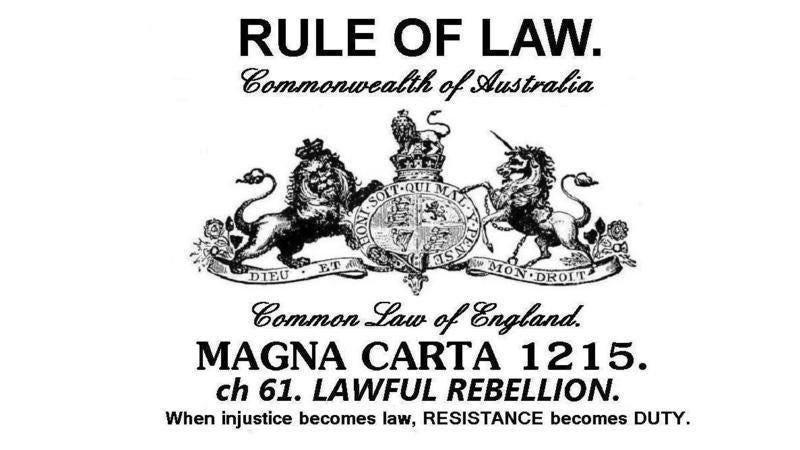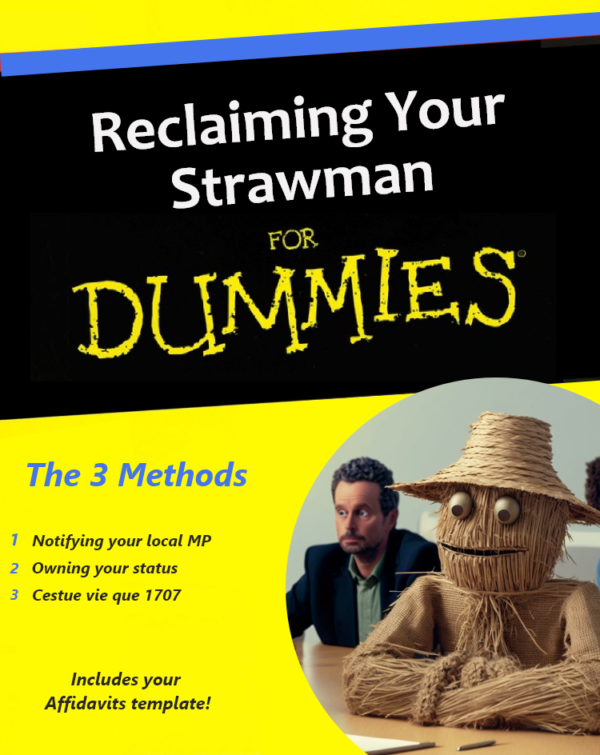Clause 61 and the Idea of Lawful Rebellion
When King John agreed to the Magna Carta in 1215, one clause stood out from all the rest: Clause 61. It was known as the “security clause,” and it gave the barons a way to make sure the king actually kept his promises.
Under this clause, twenty-five barons were chosen to watch over the king’s behaviour. If he broke the Charter and didn’t fix things within forty days after being warned, those barons could take action together, even by seizing his castles and property, until he obeyed the agreement. In simple terms, if the ruler ignored the law, the people, through their representatives, had a legal way to push back.
Although the Pope cancelled the 1215 Charter only weeks later, the idea behind Clause 61 was groundbreaking. It said that the king wasn’t above the law and that ordinary people could hold power to account — not as lone rebels, but as a united group acting for the common good.
Why lawful rebellion It Has to Be Collective
Clause 61 wasn’t about personal rebellion. It didn’t give individuals permission to rise up whenever they felt wronged. It was about collective action — people joining together through fair process when leaders abused power.
That’s still true today. One person shouting alone rarely changes a system, but when communities act together, lawfully and peacefully, they can hold governments accountable. That’s the real spirit of “lawful rebellion”: working together to demand justice without slipping into chaos or violence.
What the Magna Carta 1215 Means in Modern Times
Today, Clause 61 no longer has legal force; it’s not part of UK law.
But its message still matters.
Instead of barons taking castles, we now have tools like courts, Parliament, free media, peaceful protest, and public campaigns and boycotts – These are modern ways to challenge unfair or abusive power.
Here are a few examples.
Court cases like the Miller case in 2017, where judges ruled the government couldn’t make major constitutional changes such as Brexit without Parliament’s approval, reflect the same principle: power must follow the law.
Peaceful protests, from the civil rights marches to environmental campaigns, use collective, non-violent pressure to demand change.
Investigative journalism and petitions help uncover wrongdoing and give ordinary people a voice.
All these methods are modern forms of lawful rebellion. They work within the system but remind leaders that their power depends on public consent.
Keeping the Spirit Alive
Clause 61 may be gone from the law books, but its spirit of accountability lives on. It reminds us that governments must answer to the people, and that freedom only survives when citizens act together to defend it.
Lawful rebellion today doesn’t mean breaking the law. It means using the law, public pressure, and collective voice to stop injustice. It’s about standing up, not tearing down. When citizens unite peacefully to demand fairness and honesty from those in charge, they keep the promise of the Magna Carta alive: that no one is above the law, and justice belongs to everyone.
Ways to Push Back: Boycotts, Non-Cooperation and Building Alternatives
People who want to resist harmful rules or excessive control have several options that are effective, lawful and non-violent. These strategies all rely on collective action and public accountability rather than secretive or violent tactics.
Withdraw consent through economic pressure. Boycotts, divestment campaigns and targeted consumer pressure can hit where power is felt most: the wallet. History shows this works. The Montgomery bus boycott and global anti-apartheid divestment campaigns both used economic pressure to force political change. A successful boycott is organised, targeted, sustained and public — it aims to change behaviour by making the cost of continued abuse too high.
Refuse to cooperate with unjust policies, together. Non-cooperation differs from private lawbreaking. It means organised, collective refusal to follow a policy that is widely regarded as unjust, while remaining non-violent and taking responsibility for the action. Such refusal is most credible when it is transparent, principled, and accompanied by explanation and public appeal. The moral force of non-cooperation comes from the willingness to accept the consequences and from public solidarity.
Use institutional and legal levers.
Courts, parliaments, ombudsmen and regulatory bodies are where many lasting changes happen. Strategic litigation, public inquiries and freedom of information demands can expose unlawful or abusive state behaviour and force reform. Filing complaints, supporting test cases, and backing organisations that litigate in the public interest are ways to challenge harmful rules while staying within legal channels.
Mobilise political power. Voting, campaigning, supporting sympathetic candidates, forming or joining political movements, and lobbying representatives are direct ways to change laws and policies. Building broad coalitions makes political change possible and sustainable.
Build alternatives and opt out where possible. Creating and supporting community-run services, co-operatives, ethical businesses and mutual-aid networks reduces dependence on systems that abuse power. When people organise alternative institutions — for housing, food, media, finance or healthcare — they create real options and lessen the reach of harmful rules.
Use public pressure and storytelling.
Media coverage, social campaigns, petitions and public testimony can shift opinion and force leaders to act. Documenting abuses, making them visible, and creating narratives that attract sympathy and allies is often the turning point in a campaign for change.
Protect privacy and control information responsibly. Minimising unnecessary data sharing, supporting privacy-respecting services, and demanding transparency about surveillance and data use makes it harder for intrusive systems to expand. These are civic choices that reduce vulnerability without promoting wrongdoing.
Weigh the legal and ethical costs. Any form of non-cooperation or civil disobedience has risks. People who act should understand possible legal consequences, plan for support (legal advice, solidarity networks), and aim to preserve public sympathy by staying peaceful and proportionate. Non-violent discipline and a clear public rationale preserve legitimacy; secrecy, violence or harm to others undermines it.
Keep it collective and accountable. Whatever the tactic, its strength comes from numbers, organisation and clear principles. Collective action limits abuse, preserves discipline, and shares both risk and responsibility. It is also more likely to produce durable reform than fragmented or private resistance.
End Note: Keeping Hope Alive
Every generation faces its own kind of struggle between freedom and control.
Hope is not blind faith; it is the decision to keep trying when others give up. It lives in every honest conversation, every act of fairness, every moment someone refuses to be silent in the face of wrong. Real power has always rested with ordinary people who choose integrity over fear.
The spirit of the Magna Carta was never about rebellion for its own sake; it was about reminding those in power that they serve, not rule. That same spirit still matters today. If we stay informed, stand together, and keep our movements peaceful and just, then the idea of liberty doesn’t fade — it grows stronger.
Hope, in the end, is our oldest right and our greatest duty.
Reclaiming Your Strawman
Wondering how to reclaim your strawman? your legal fiction? to take control of it? This is the only book you will ever need to read on this topic and the process. this book is based on real life experience so you can ensure it has everything you need to know about the 3 methods they have found – Includes Affidavit Template.


